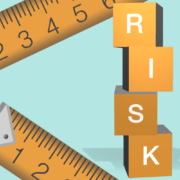How to successfully maintain your ERP system?
You have your ERP system in place already, but you are not sure how to maintain it? We have listed some of the things you need to have in mind regarding the upkeep of your enterprise resource planning system.
Needless to say, an ERP is a powerful tool, but if you do not keep it sharp through ERP maintenance, the performance will drop away. If you don’t pay enough attention to it, its life cycle will be very short.
To put it in short: ERP maintenance is much like a car maintenance. There are quite a few things that can be periodically checked and done to ensure that the processes in the system are running smoothly. A very important aspect of maintaining a system is addressing every problem as soon as it appears, so that it does not escalate down the line. Moreover, there are many things that cannot be tackled without additional professional help, so it is essential to have in mind who has the ability to take care of the specific issue.
Remember that the ERP software performance has a direct effect on the financial and cyber security in your business. So just like a car owner needs to be familiar with the car’s maintenance, businesses should have a clear idea of how to take proper care of their ERP software.
First of all, are you familiar with your ERP system? The first step is to get to grips with the software your organization is using.
If you get familiar with the system your business uses, you will get to know where it fits the marketplace and how well it meets the needs and demands of your business. So, read the manuals, try to learn more about the software house that developed it and the business that implemented it. Also, it could be very useful to know which organizations are already using the same software.
Keep your staff well-trained
Assessing your internal capabilities is an important aspect of the overall ERP maintenance. So if you don’t have ERP specialists within your IT department and your in-house staff cannot possibly handle these duties, think of third-party consultants. There are well-trained experts that can be hired to take care of your system and provide solutions when needed.
Plan your ERP life-cycle
Your maintenance plan should mirror your technology plan. When it comes to financial decisions, they should be in line with the pace implemented by your IT department. Don’t overestimate the speed at which your business is ready to move.
Also, your business should plan the usability of your ERP software. Have in mind what is the intended life-cycle of the system and how long could you go before you need upgrades. A good financial weigh-up is of utmost importance. Predicting your short-term and long-term costs of maintenance would clearly show if in the long term it would be better to go for the upgrades or to switch to a new platform.
Security and system review
A crucial part of every system maintenance is performing regular backups and system restorations. Install the patches as soon as they arrive from the vendor. This will protect your system and respectively your business from cyber hacks and data breaches. Upgrades need to be installed sequentially. Some of them are meant to fix bugs. So it is important to stay up-to-date otherwise the vendor might just stop supporting you.
In this process system reviews should be done periodically so that you ensure the health and the functionality of the software.
Get feedback
As an organization evolves, so do all the processes in it. So one should confirm the system’s continuous usability by getting feedback from users. In this way you will know what needs to be redesigned so that the ERP system doesn’t become outdated. Customers and vendors can bring valuable outside perspectives to ERP maintenance. Also, ask employees what could be improved and suggested so that their jobs become easier and more productive
In the whole maintenance process, you should keep track of the changes that happen in your business or the things that changed over the last year – what new technologies you have used, what new customers you have added, or if there are old customers that dropped away. All these observations and the overall analysis will help in the maintenance of your ERP system so that it contributes even more to your business development.
image source: strategic.com












Leave a Reply
Want to join the discussion?Feel free to contribute!